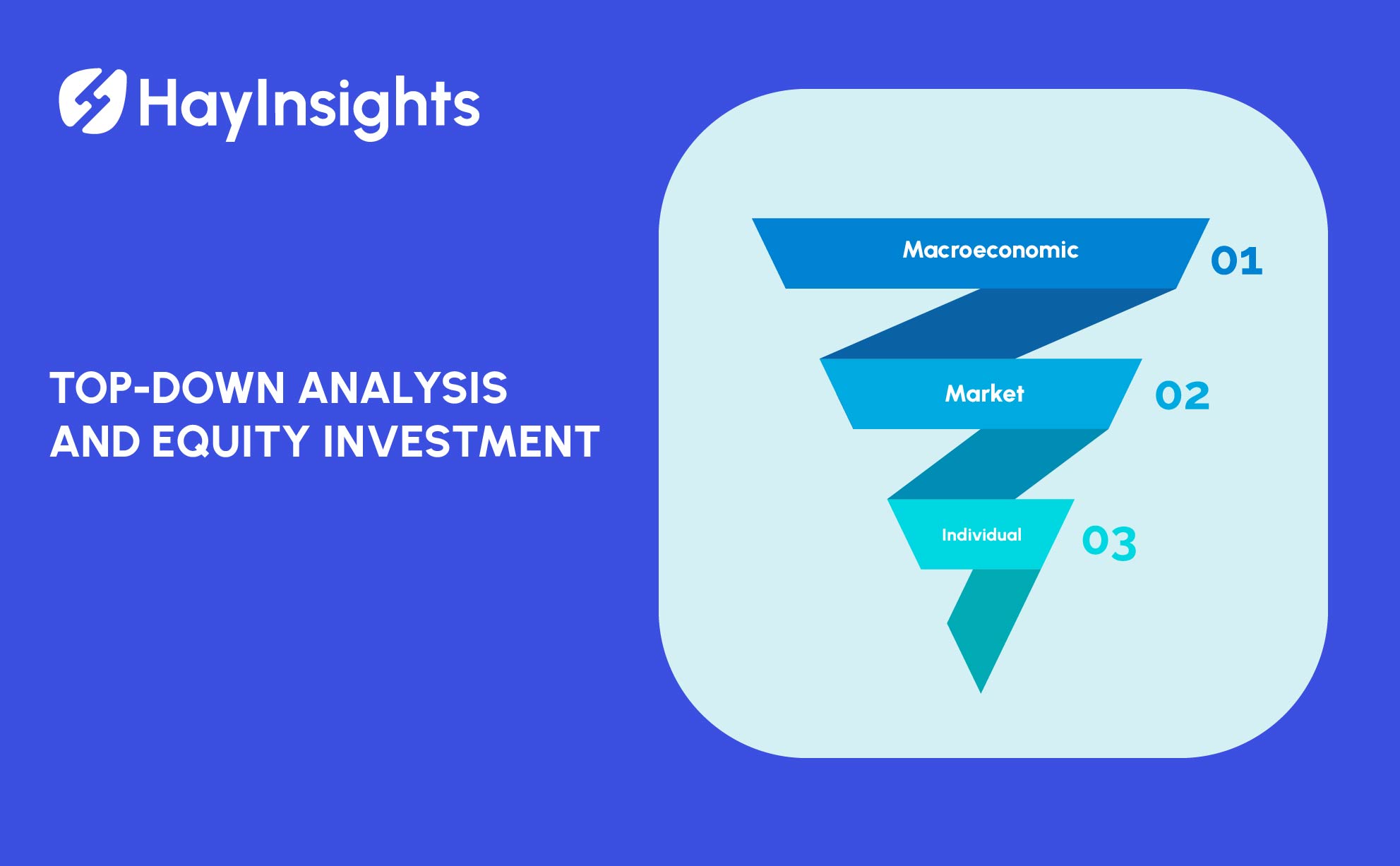
Promising Top-Down Investment Strategy in Japan 2024
Introduction
In recent years, data analytics has revolutionized the retail investing landscape globally, enabling individual investors to make more informed and strategic decisions. In Japan, the increasing availability of data and advancements in analytical tools have empowered retail investors to approach the market with greater sophistication. One method that has gained traction is the top-down approach, which relies heavily on data-driven insights to assess macroeconomic conditions before narrowing down to sector-specific and stock-level decisions. This article delves into the role of data analytics and top-down investment strategy in retail investing, particularly in Japan, through the lens of the top-down approach, highlighting its potential to optimize investment strategies.
Understanding Data Analytics in Retail Investing
Definition of Data Analytics
Data analytics in retail investing refers to the systematic computational analysis of investment-related data, which includes vast amounts of historical price data, economic indicators, company performance metrics, and sector trends. By processing and analyzing this data, investors can derive insights that help inform buy, sell, or hold decisions.
Importance of Data Analytics in Investment Strategies
Data analytics offers retail investors an advantage previously reserved for institutional players. It helps them reduce risks by identifying patterns, understanding market cycles, and anticipating potential opportunities. In Japan’s highly dynamic market, where economic, demographic, and technological factors are constantly evolving, data analytics allows investors to keep pace with these shifts and build robust portfolios.
The Top-Down Investment Approach Explained
Overview of the Top-Down Investment Strategy
The top-down approach to investing begins by analyzing macroeconomic factors such as GDP growth, inflation, and interest rates, and their impact on the overall market. Once broader economic conditions are assessed, investors can focus on identifying promising sectors before selecting individual stocks within those sectors. This method helps to align investments with the economic environment, increasing the likelihood of long-term success.
Benefits of a Top-Down Approach
A top-down approach offers several benefits. First, it enables investors to identify macroeconomic trends and capitalize on sectors that are well-positioned to thrive under current market conditions. Second, it narrows the investment universe, making the stock selection process more focused. Finally, by understanding the larger economic context, investors are better equipped to avoid sectors or stocks facing headwinds.
The Japanese Retail Investment Landscape
Current Trends in Japanese Retail Investing
Retail investing in Japan has grown steadily, with more individuals engaging in the stock market and other investment vehicles. The adoption of online brokerage platforms has made it easier for investors to access real-time data and analysis tools. In addition, environmental, social, and governance (ESG) factors are increasingly influencing investment decisions, and Japanese retail investors are showing a strong interest in sustainable and ethical investing.
Challenges Faced by Retail Investors in Japan
Despite these advancements, retail investors in Japan face several challenges. Market volatility, especially due to external geopolitical factors, can create uncertainty. Additionally, access to high-quality data and analytical tools, while improving, is still less pervasive compared to more mature markets like the U.S. Furthermore, Japanese investors tend to be more risk-averse, which can limit their potential returns in high-growth sectors.
Leveraging Data Analytics in a Top-Down Investment Strategy Approach
Identifying Macroeconomic Indicators
In the top-down approach, identifying key macroeconomic indicators such as Japan’s monetary policy, trade balance, and employment figures is critical. Data analytics tools can provide investors with up-to-date information on these indicators, enabling them to make informed decisions on market timing and sector allocation.
Sector Analysis Using Data Analytics
Once macroeconomic conditions are understood, sector analysis becomes the next step. Data analytics can highlight trends across different industries, helping investors identify sectors poised for growth. For example, with Japan’s focus on technology and automation, data might indicate favorable conditions for sectors like robotics or fintech.
Stock Selection Based on Analytical Insights
After pinpointing promising sectors, retail investors can utilize data analytics to perform detailed stock analysis. Tools that incorporate machine learning can process vast amounts of financial data, identifying undervalued stocks or companies with strong fundamentals that align with macroeconomic trends.
Case Studies: Success Stories in Japan
Successful Retail Investors Utilizing Data Analytics
There are numerous success stories in Japan where retail investors have leveraged data analytics to outperform the market. For example, individual investors who adopted a top-down approach in the wake of Abenomics, focusing on sectors like construction and technology, reaped significant rewards as these sectors experienced rapid growth.
Lessons Learned from Effective Strategies
These case studies reveal key lessons for retail investors. First, utilizing data to track macroeconomic indicators and sector performance is vital in identifying opportunities early. Second, having access to reliable and real-time data analytics platforms is crucial for making informed decisions and adapting to market changes.
Tools and Technologies for Data Analytics
Popular Data Analytics Tools for Retail Investors
Various tools are available to assist retail investors in Japan. Platforms like Bloomberg, Reuters Eikon, and Yahoo Finance Japan offer access to financial data, news, and analytics. These platforms also provide charting tools that enable investors to visualize trends and perform technical analysis.
Integrating AI and Machine Learning in Investment Decisions
Artificial Intelligence (AI) and machine learning (ML) are becoming increasingly integrated into investment platforms. These technologies enable investors to automate the analysis of vast datasets, uncover hidden correlations, and make predictions with higher accuracy. For instance, ML algorithms can assess how changes in the yen-dollar exchange rate impact specific sectors, helping retail investors refine their strategies.
Future Trends in Data Analytics and Retail Investing
Emerging Technologies Shaping the Landscape
Emerging technologies like quantum computing and blockchain are set to further transform data analytics in retail investing. Quantum computing, in particular, could revolutionize how investors process complex data sets, offering new levels of precision in predicting market movements.
Predictions for the Future of Retail Investing in Japan
Looking ahead, data analytics will likely play an even more significant role in shaping retail investment strategies. With Japan’s aging population and growing emphasis on sustainable investments, retail investors will increasingly use data to align their portfolios with societal and technological shifts. The integration of real-time data and AI-driven tools will become essential for maintaining a competitive edge.
Conclusion
Summarizing the Impact of Data Analytics on Retail Investing
Data analytics has become a game-changer for retail investors, particularly in Japan, where market conditions are influenced by a complex interplay of global and domestic factors. By adopting a top-down approach and leveraging data analytics, investors can make informed decisions that align with macroeconomic conditions, leading to better sector and stock selection.
Encouraging Informed Decision-Making for Retail Investors
As retail investing continues to evolve in Japan, the importance of data-driven decision-making cannot be overstated. Investors who embrace advanced analytical tools and maintain a disciplined top-down approach will be well-positioned to navigate Japan’s market and capitalize on emerging opportunities.













